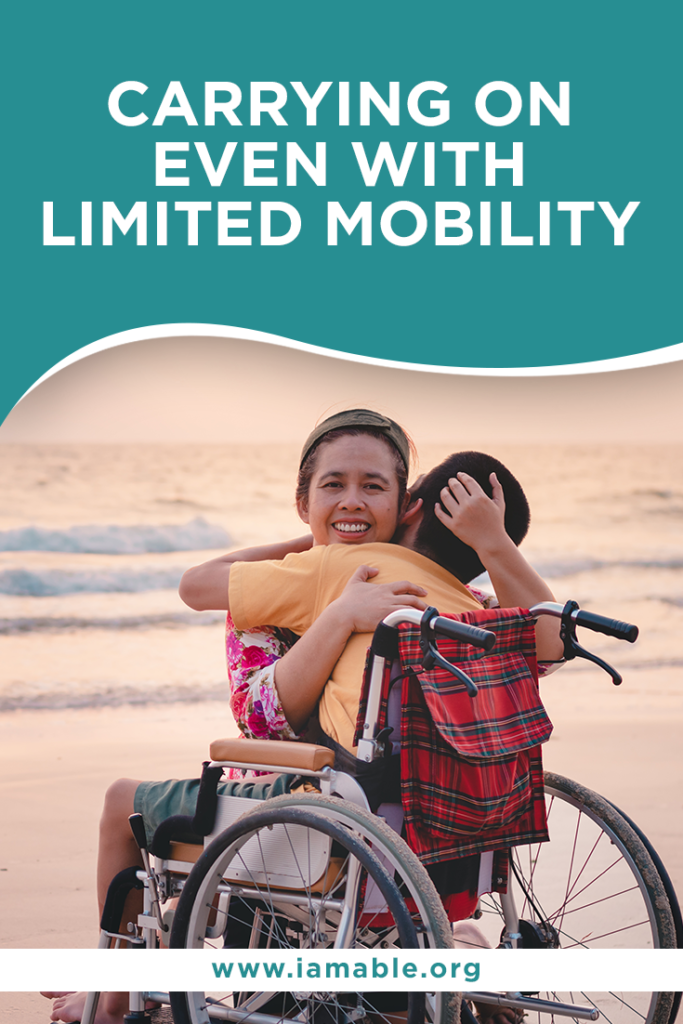Miami, FL 33186

One of the effects of the COVID-19 pandemic is limited mobility. Especially during the first few months of the spread of the virus, citizens from all over the world had to endure home quarantine or sheltering in place. We were encouraged not to leave our homes (unless necessary) to prevent the coronavirus from getting more victims.
Many patients with cerebral palsy (CP) are familiar with mobility limitations—only, it doesn’t take a worldwide pandemic for them to experience issues with their movement. CP is a long-term mobility condition that some people are born with or may acquire in the first few years of their lives.
Plenty of patients with cerebral palsy seek activity based therapy in Miami, FL, in the hopes of improving their mobility and overall quality of life. This kind of activity is one of the many ways they cope with their condition amid the pandemic.
Before we talk about other methods for dealing with CP, let’s discuss some vital information about cerebral palsy.
Mobility is a privilege not extended to many patients with cerebral palsy. CP directly affects the components of the brain responsible for the ability and coordination for movement. Depending on the parts affected by the condition, patients may have varying CP experiences.
For example, some children with CP may experience difficulty in keeping their arms and legs still, while others have stiffness and rigidity in some muscles in their bodies.
There are five types of cerebral palsy based on the involved mobility disorder:
Spastic CP makes up an estimated 77% of all cerebral palsy cases. If your child has this cerebral palsy, he may present an abnormal walking pattern, jerky or sudden motions, and stiff muscles.
Athetoid CP, on the other hand, makes up 2.6% of the recorded cerebral palsy cases. Posture issues, uncontrollable movements, and changing muscle tones (loose and stiff) are usually associated with athetoid CP.
Ataxic CP only makes up 2.4% of all cerebral palsy cases. Those with ataxic CP may experience poor balance and impeded depth perception. They are often unsteady when walking and have a hard time using their hands due to poor coordination.
Like athetoid CP, only 2.6% of cerebral palsy cases are diagnosed as hypotonic (or atonic) CP. Floppy and weak muscles are what characterizes this type of cerebral palsy. Children with this type of CP may miss out on crawling, walking, and standing.
As the name suggests, mixed CP can be a combination of any of the types mentioned above. This makes 15.4% of all recorded cerebral palsy cases.
Before finding an activity based therapy in Miami, FL, caregivers must determine the form of CP their children have based on the location of the mobility limitations. A person with cerebral palsy may fall into these five categories:
A piece of advice for those caregivers of children with CP: Honing their motor skills by playing is essential in their growth. Developing their movements and coordination is a critical process for them to live a quality life. That being said, here are five ways so they can cope with cerebral palsy:
Art and music can be a positive venue for the stress and anxiety brought by cerebral palsy and the pandemic. They can sing along or listen to newly discovered music. They can also appreciate or, even better, create art in the form of drawings, paintings, or even create videos of their own.
Sorting games help develop motor skills and hand coordination. For example, they can try out a “fruit basket” game where they need to place the fruits of the same color in one basket. There are plenty of other games that fit in this method. This is also a great exercise when familiarizing themselves with colors, shapes, and even words. Who knew games could be both fun and educational?
Thanks to science and technology, doctors have created means to protect people from coronavirus. As a result, we can now explore and appreciate nature. So, if circumstances permit, why not set a nature break for you and your family? Take a breath of fresh air and start a new adventure in Mother Nature’s cradle.
Learning is, perhaps, the single thing that the pandemic is unable to stop. So, if you have spare time, why not help your child widen his/her knowledge about anything under the sun or even beyond the stars? For a child with CP, learning about deep-sea creatures, dinosaurs, fairy tales, different galaxies, or any topic can be fun.
Keeping in shape and maintaining adequate muscle activity is also an essential factor in improving the lives of those with cerebral palsy. Physical therapists can help them set goals and teach them patience and words of encouragement to keep themselves going.
If you are seeking an activity based therapy in Miami, FL for your kid or adult child with cerebral palsy, look no further. At iAM Able, our trained and experienced physical therapists can create a specialized rehabilitation program for them in the hopes of improving their muscle functions and overall quality of life.
We understand the importance of their overall health as well. That said, many of our patients have benefited from reading our ebook, 7 Unbelievably Important Steps to Take to THRIVE after Paralysis. It can provide words of encouragement to prepare them and even you in dealing with whatever comes into your lives. We know that coping with CP is an ongoing process– a battle for their best life possible, and we’re here to support you along the way.
Grab our free e-book 7 Unbelievably Important Steps to Take to THRIVE after Paralysis by clicking the image below.
